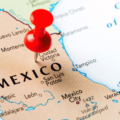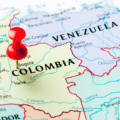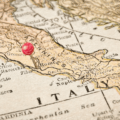Introduction
Finding equilibrium between work and wanderlust can be a challenge. As a data scientist, you possess the opportunity to blend these realms seamlessly by embracing the digital nomad lifestyle.
This insightful read will guide you on your journey from standard office routine to unrestricted location independence through tech powered workspaces. Let’s navigate this thrilling voyage together!
Key Takeaways
- Data scientists are well – suited to becoming digital nomads due to the flexibility of their work and the rise in remote job opportunities in the field.
- To become a data science digital nomad, it is important to continuously improve technical skills, build a professional network, create an impressive portfolio, and become a freelancer.
- The benefits of being a data science digital nomad include flexible work schedules, the ability to work from anywhere with an internet connection, exposure to different cultures and experiences, networking opportunities with professionals from diverse backgrounds, and personal growth and development.
Can Data Scientists Be Digital Nomads?
Absolutely, data scientists stand out as some of the best candidates for embracing the digital nomad lifestyle. This new age professional realm thrives on analytical skills and problem-solving prowess – traits that come naturally to data scientists.
In essence, a digital nomad utilises telecommunications technology to maintain their work-life while indulging in a location-independent lifestyle.
The role of a data scientist is inherently flexible. It revolves around data mining, machine learning, big data analytics, Natural Language Processing (NLP), and other forms of analysis which can be executed from any part of the globe with access to reliable internet connectivity.
The rise in remote job opportunities combined with advancements in telecommunications technology has created an enabling environment for this class of professionals.
Embracing freelancing could further fuel this transformation into becoming a travelling freelancer – providing freedom to not only choose your projects but also where you’d like to execute them from.
Platforms like Reddit serve as resources-rich communities where one can discover useful tips about managing challenges that might surface during this shift. As such, striking balance between being an effective professional and experiencing travel’s richness makes it possible for any proficient person within the field of data science to become successful digital nomads!
Steps to Becoming a Digital Nomad as a Data Scientist
To become a digital nomad as a data scientist, you need to level up your technical skills, build your professional network, create a portfolio, become a freelancer and find clients.
Level up your technical skills
To thrive as a data science digital nomad, it’s crucial to continuously improve and expand your technical skills. As the field of data science rapidly evolves, staying up-to-date with the latest tools, programming languages, and statistical techniques is essential.
Take advantage of online learning platforms like Coursera or DataCamp, where you can acquire new knowledge at your own pace. Additionally, joining online communities and attending conferences dedicated to data science will expose you to cutting-edge ideas and trends in the industry.
Remember that honing your technical expertise not only increases your chances of landing remote work opportunities but also ensures that you deliver high-quality results for clients regardless of your location or time zone.
Build your professional network
Building a professional network is essential for data scientists looking to embrace the digital nomad lifestyle. By connecting with other professionals in the industry, you can gain access to valuable insights, job opportunities, and collaborations.
Joining online communities and forums dedicated to data science or remote work can provide a platform for networking and sharing experiences. Participating in conferences, workshops, and meetups related to your field of expertise can also help expand your network while exploring different locations around the world.
Building relationships with like-minded individuals will not only enhance your career prospects but also create a support system as you navigate the challenges of being a data science digital nomad.
Create your portfolio
To become a successful data science digital nomad, it is crucial to create an impressive portfolio that showcases your skills and experience. Your portfolio should include relevant projects you have worked on, highlighting your ability to analyze data and provide valuable insights.
This will not only demonstrate your expertise to potential clients but also give them a clear idea of the value you can bring to their projects. Additionally, including testimonials or recommendations from previous clients or colleagues can further strengthen your credibility as a remote data scientist.
Remember, having a well-crafted portfolio will help you stand out in the competitive freelance market and attract high-quality clients who are willing to pay for your expertise.
Become a freelancer
To fully embrace the digital nomad lifestyle as a data scientist, one option is to become a freelancer. As a freelancer, you have the freedom to work on your own terms and take on projects that align with your interests and skills.
This allows you to create your own schedule, choose where you want to work from, and control your workload. With the increasing demand for data science expertise across industries, there are ample opportunities for freelance data scientists in today’s remote job market.
Whether it’s through online platforms or networking within the digital nomad community, freelancing offers flexibility and autonomy while still allowing you to utilize your analytical skills and pursue your passion for data science.”.
Find clients
To successfully embark on a digital nomad journey as a data scientist, one important step is finding clients who are in need of your expertise. Thankfully, the demand for talented data scientists continues to grow, meaning there are ample opportunities out there.
Start by tapping into your professional network and reaching out to contacts who may know of potential client leads. Additionally, consider joining online communities and platforms where freelancers and remote workers gather to exchange information about job openings and projects.
These platforms can provide valuable networking opportunities and help you find clients across the globe. Remember that building a strong portfolio showcasing your skills and previous work is essential when marketing yourself as a freelance data scientist.
Benefits of Being a Data Science Digital Nomad
Being a data science digital nomad offers the flexibility to create your own work schedule, work from anywhere in the world, experience different cultures, forge valuable connections, and achieve personal growth.
Flexible work schedule
Having a flexible work schedule is one of the key benefits of being a data science digital nomad. As a remote worker, you have the freedom to set your own hours and work at times that are most convenient for you.
This flexibility allows you to align your work with your personal preferences and optimize productivity based on your energy levels throughout the day. Whether you’re an early bird or a night owl, being able to adjust your working hours can greatly enhance your overall job satisfaction and work-life balance.
With no fixed 9-5 routine, you can take breaks when needed, explore new destinations during off-peak travel seasons, or simply enjoy time with friends and family when it suits you best. Embracing this flexibility is empowering as it enables digital nomads to create their ideal professional lifestyle.
Ability to work from anywhere
As a data science digital nomad, one of the most significant benefits is the ability to work from anywhere. With a laptop and an internet connection, you can carry out your data analysis and problem-solving tasks from any location in the world.
Whether you choose to work from bustling coffee shops in vibrant cities or serene beachside locations, the choice is entirely yours. This flexibility allows you to create your ideal workspace that suits your productivity preferences and enhances your overall job satisfaction.
Moreover, it enables you to explore new destinations while still earning a living, making it an excellent option for those who crave adventure and want to experience different cultures firsthand.
Exposure to different cultures and experiences
As a data science digital nomad, one of the greatest benefits is the exposure to different cultures and experiences. By living and working in various locations around the world, you have the opportunity to immerse yourself in unique environments and gain a deeper understanding of different cultures.
This exposure can greatly enhance your personal growth and development as you learn to adapt to new ways of thinking, problem-solving, and collaborating with individuals from diverse backgrounds.
Not only does this cultural exposure broaden your horizons, but it also enriches your professional skills. As a data scientist, being exposed to different cultures gives you valuable insights into how data is collected, analyzed, and interpreted across various industries and regions.
You can leverage this knowledge when working on projects for clients or collaborating with other professionals from around the globe.
Furthermore, immersing yourself in different cultural experiences allows you to approach data analysis with a fresh perspective. The insights gained from interacting with people from diverse backgrounds can lead to innovative solutions that may not have been considered otherwise.
Networking opportunities
Networking opportunities are abundant for data science digital nomads. As they travel and work from different locations, they have the chance to connect with professionals in various industries and build valuable relationships.
Attending local meetups, conferences, and workshops can allow them to stay updated on the latest trends in data science while expanding their network and finding potential collaborators or clients.
Additionally, online communities and platforms dedicated to data scientists offer a space for knowledge sharing, collaboration, and networking. Engaging with these communities not only provides access to valuable insights but also opens doors to remote job opportunities and partnerships with like-minded individuals around the globe.
Personal growth and development
As a data science digital nomad, one of the significant benefits you can enjoy is personal growth and development. By immersing yourself in different cultures and experiences, you’ll broaden your horizons and gain a deeper understanding of the world around you.
Exploring new places will challenge you to adapt to unfamiliar environments, strengthening your problem-solving skills and enhancing your ability to think creatively. Additionally, networking with professionals from diverse backgrounds will expose you to alternative perspectives and innovative ideas that can inspire your work as a data scientist.
This unique lifestyle allows for continuous learning, pushing you out of your comfort zone and enabling personal growth both personally and professionally.
Tips for Living and Working as a Data Science Digital Nomad
– Find suitable accommodations and coworking spaces that provide a conducive work environment while offering opportunities to connect with other digital nomads.
Finding suitable accommodations and coworking spaces
Finding suitable accommodations and coworking spaces is essential for data science digital nomads. Here are some tips to help you in your search:
- Research popular digital nomad destinations: Look up locations that have a thriving digital nomad community and offer good infrastructure for remote work. Places like Bali, Chiang Mai, and Lisbon are known for their coworking spaces and affordable accommodation options.
- Use online platforms: Websites like Airbnb, Booking.com, and Nomad List can help you find suitable accommodations that cater to remote workers. Look for places with a dedicated workspace or access to coworking spaces nearby.
- Consider coliving spaces: Coliving spaces are designed specifically for digital nomads and often provide a mix of private rooms and shared workspaces. They offer a great opportunity to connect with like-minded individuals while having a dedicated workspace.
- Read reviews: Before booking any accommodation or coworking space, make sure to read reviews from previous guests or members. This will give you insights into the quality of the facilities, internet speed, and overall experience.
- Check internet speed and reliability: As a data scientist, having fast and reliable internet is crucial for your work. Before booking an accommodation, check if they have high-speed internet available or if there are nearby cafes or coworking spaces with good connectivity.
- Consider the cost of living: When choosing your accommodation, take into account the cost of living in the location. Some cities may offer cheaper accommodation options but have a higher cost of living overall.
- Look for flexible rental options: If you prefer to stay longer in one place, consider renting an apartment or house on a monthly basis rather than staying in hotels or guesthouses.
- Join local communities: Once you arrive at your destination, join local digital nomad communities or events where you can meet other remote workers who can recommend suitable accommodations and coworking spaces.
- Plan ahead: Popular destinations can get crowded, especially during peak seasons. Plan your accommodation in advance to secure the best options and avoid last-minute stress.
- Be open to new experiences: Part of the digital nomad lifestyle is embracing new environments. Don’t be afraid to try different accommodations or coworking spaces in various locations to find what suits you best.
Balancing work and travel
To balance work and travel as a data science digital nomad, you need to prioritize your tasks and manage your time effectively. Here are some tips to help you maintain a healthy work-life balance while on the road:
- Plan ahead: Before embarking on your journey, create a schedule that outlines your work hours and travel plans. This will help you allocate time for both work and exploration.
- Set realistic goals: Break your projects into smaller tasks and set achievable goals for each day or week. This will keep you focused and motivated without overwhelming yourself.
- Establish a routine: Find a daily routine that works for you. It can include dedicated work hours in the morning or evening, with the rest of the day reserved for exploring new places or engaging in leisure activities.
- Use productivity tools: Take advantage of remote working tools such as project management software, time tracking apps, and collaboration platforms to stay organized and efficient while working remotely.
- Prioritize reliable internet access: Ensure that you have access to fast and reliable internet wherever you go. Research coworking spaces or cafes with good internet connections to ensure uninterrupted work.
- Minimize distractions: While traveling, there can be many distractions around you. Find quiet spots or coworking spaces where you can concentrate on your work without interruptions.
- Delegate when possible: If certain tasks can be delegated or outsourced, consider doing so to free up more time for yourself and focus on high-priority tasks.
- Take regular breaks: It’s important to give yourself breaks throughout the day to recharge mentally and physically. Use these breaks to explore your surroundings, go for walks, or engage in other activities that help you relax.
- Stay disciplined: Stick to the schedule you’ve set for yourself and avoid procrastination. Remember that being productive allows you more freedom to enjoy your travels guilt-free.
- Practice self-care: Take care of yourself by getting enough sleep, eating well, and engaging in regular exercise. A healthy body and mind will help you stay focused and energized while working remotely.
Managing time zones and communication with clients
To successfully work as a data science digital nomad, it’s crucial to effectively manage time zones and communication with clients. Here are some tips for achieving this:
- Be aware of time zone differences: When working across multiple time zones, it’s important to be mindful of the time differences between you and your clients. Use tools like World Clock or TimeBuddy to keep track of different time zones and avoid scheduling conflicts.
- Set clear communication expectations: Establish clear communication channels and preferences with your clients from the beginning. Whether it’s through email, instant messaging platforms, or video conferencing tools, determine the best way to stay in touch based on your client’s preferences.
- Plan ahead: Plan your work schedule ahead of time by considering the time zone of your clients. This will help you allocate specific hours for client meetings, calls, and project updates without overlapping with their business hours.
- Be flexible: As a digital nomad, you may need to adjust your working hours occasionally to accommodate client requests or urgent deadlines. Being flexible with your schedule can help ensure smooth communication and maintain positive client relationships.
- Communicate proactively: Regularly update your clients on project progress and any potential delays that may arise due to travel or technical issues. Proactive communication helps manage expectations and builds trust with remote clients.
- Leverage communication tools: Utilize collaborative tools such as Slack, Trello, or Asana to streamline communication and project management processes with your clients. These platforms facilitate real-time collaboration even when working remotely.
- Regular check-ins: Schedule regular check-ins with your clients to provide status updates on projects or address any concerns they may have. These meetings can be done through video calls or conference calls, ensuring effective two-way communication.
- Prioritize responsiveness: Timely response is critical in remote work scenarios, as it demonstrates professionalism and ensures smooth workflow between you and your clients. Strive to be responsive to client inquiries and messages within a reasonable timeframe.
- Utilize language translation tools: If you’re working with clients in different countries, language barriers may arise. Use translation tools like Google Translate or DeepL to overcome language differences and ensure clear communication.
- Maintain professional etiquette: Even though you may be traveling and experiencing new places, it’s essential to maintain professional etiquette when communicating with clients. Demonstrate professionalism through your tone, punctuality, and adherence to deadlines.
Staying motivated and productive on the road
Maintaining motivation and productivity while working as a data science digital nomad can be challenging, but with the right strategies, it is definitely achievable. One key factor is finding a dedicated workspace that allows you to focus on your tasks without distractions.
This could be a quiet coffee shop or a coworking space equipped with all the necessary amenities. Additionally, establish a consistent routine by setting clear work hours and sticking to them.
Break down your tasks into smaller, manageable chunks and set realistic goals for each day. Prioritize your workload and tackle the most critical tasks first to maintain momentum throughout the day.
Maintaining work-life balance
Maintaining a healthy work-life balance is crucial for data science digital nomads. While the freedom to work remotely and travel can be exciting, it’s important to establish boundaries and prioritize self-care.
One way to achieve this balance is by setting clear working hours and sticking to them. This allows you to dedicate focused time to your projects while still leaving room for personal activities and downtime.
Another key aspect is creating a designated workspace wherever you are, ensuring that it’s free from distractions and conducive to productivity. Additionally, taking advantage of technology tools like task management apps or time-tracking software can help you stay organized and accountable.
Conclusion
In conclusion, the digital nomad lifestyle offers tremendous opportunities for data scientists to work remotely and enjoy a flexible work schedule. By honing their technical skills, building a professional network, and creating an impressive portfolio, data scientists can thrive as freelancers and find clients from around the world.
With benefits such as the ability to work from anywhere, exposure to different cultures, and networking opportunities, becoming a data science digital nomad opens up new horizons for personal growth and development.
So pack your bags, embark on this exciting journey, and let your analytical prowess take you places!
FAQs
1. What is a data science digital nomad?
A data science digital nomad is a professional who combines the skills of data analysis and remote work, allowing them to travel and work from anywhere in the world while utilizing their expertise in handling large datasets and extracting valuable insights.
2. How can I become a data science digital nomad?
To become a data science digital nomad, you need to have strong proficiency in programming languages such as Python or R, as well as a solid understanding of statistics and machine learning algorithms. Additionally, you should develop your remote work skills and seek opportunities for freelance or remote positions within the field.
3. What are the benefits of being a data science digital nomad?
Being a data science digital nomad offers several benefits including flexibility in choosing your work environment, exposure to diverse cultures and experiences through travel, potential for higher earning potentials due to working on international projects, and the ability to maintain a healthy work-life balance by integrating personal passions with professional pursuits.
4. Are there any challenges associated with being a data science digital nomad?
While being a data science digital nomad has its advantages, it also comes with certain challenges. These may include dealing with different time zones when collaborating with teams or clients worldwide, ensuring stable internet connections while traveling, managing project deadlines independently without regular supervision,and continuously upskilling yourself to stay relevant in an ever-evolving industry.


























